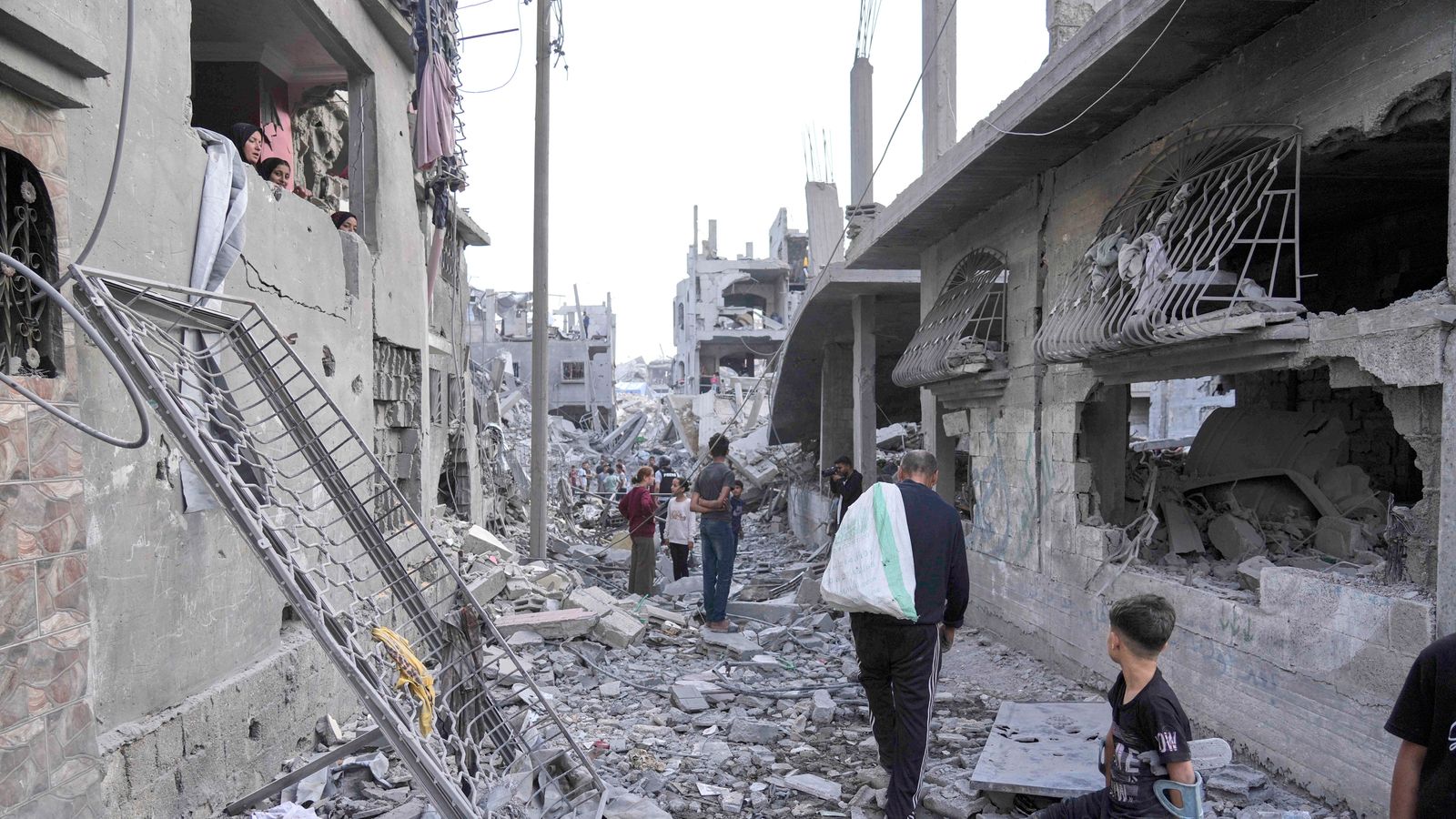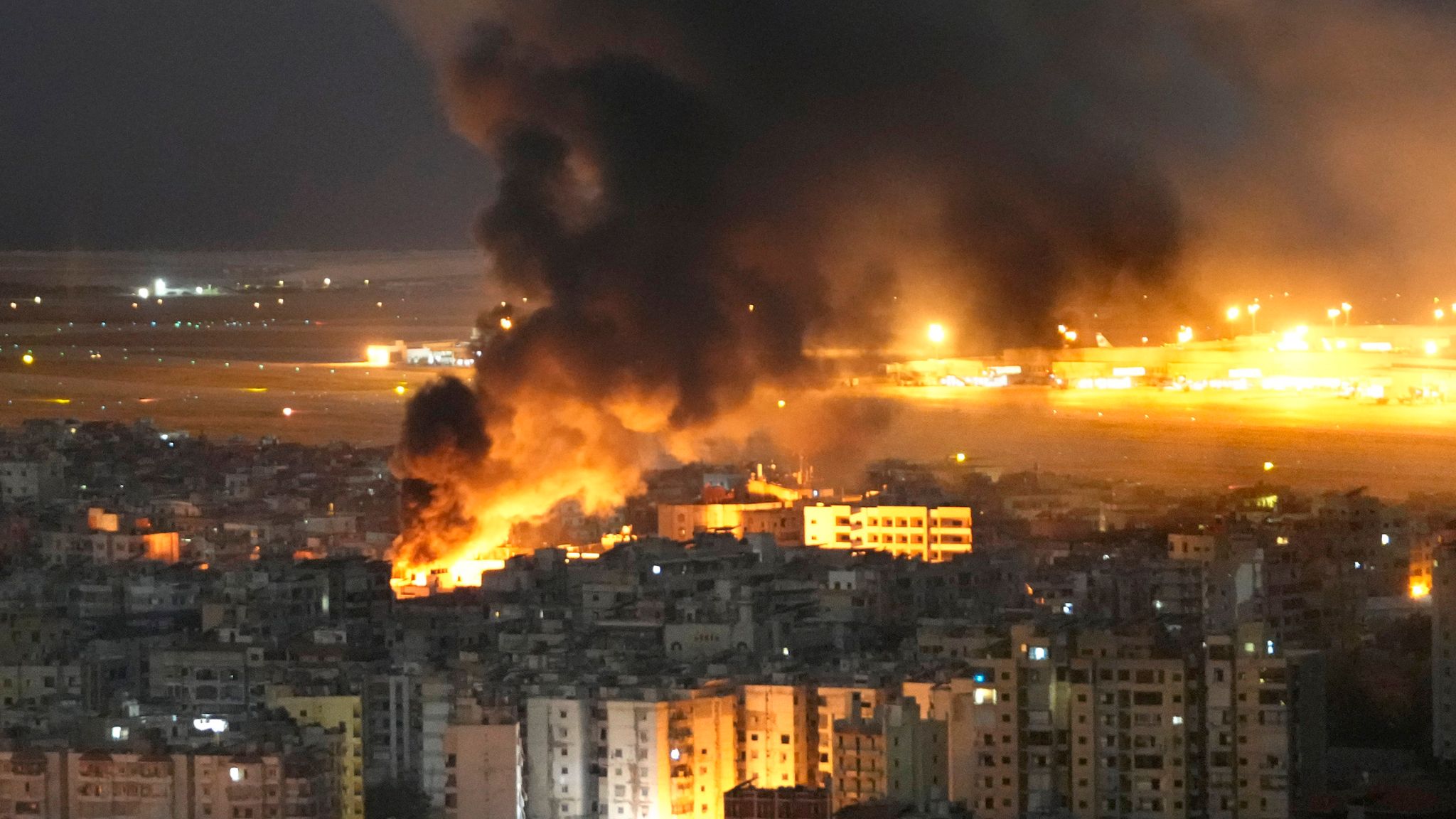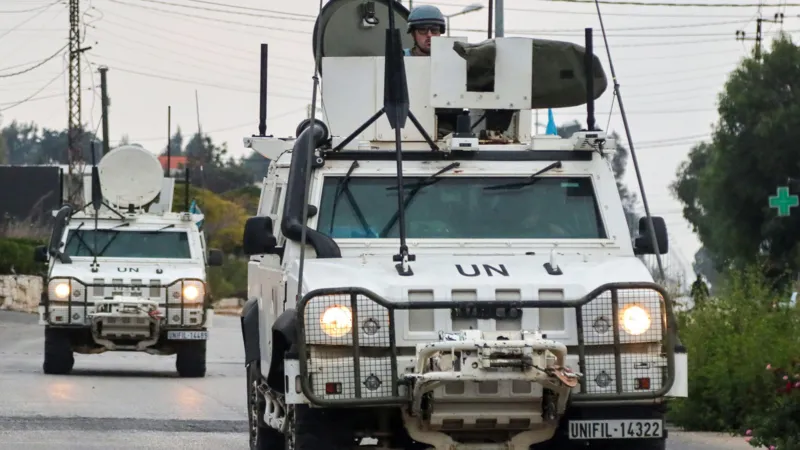Dozens killed in strikes on Gaza - as UN Security Council urged to 'prevent genocide'
Dozens of people have been killed following Israeli strikes in Gaza, including at hospitals, as a United Nations chief warns action is needed to "prevent genocide".

On Wednesday morning, Israeli airstrikes hit homes in Jabalia, in northern Gaza, killing at least 53 people, according to the Hamas-run health ministry. The Indonesian Hospital said 22 of those who died were children.
The Israeli military refused to comment on the strikes, but had warned local residents to evacuate late on Tuesday night due to Hamas infrastructure in the area, including rocket launchers.
On Tuesday, nine missiles hit the European Hospital and its courtyard in the south of the Palestinian territory, killing at least 16 people, the Gaza health ministry said.
Israel said it had hit a "Hamas command centre" beneath the hospital in Khan Younis. Hamas denies exploiting hospitals and civilian properties for military purposes.
The United Nations' top humanitarian official briefed the Security Council on Tuesday evening, warning they must "act now" to "prevent genocide", a claim that Israel vehemently denied.
Tom Fletcher, head of the UN Office for the Coordination of Humanitarian Affairs, accused Israel of "deliberately and unashamedly" imposing inhumane conditions on Palestinians by blocking aid from entering Gaza more than 10 weeks ago.
The UN and aid groups have rejected Israel's attempt to control aid distribution. "It is a cynical sideshow. A deliberate distraction. A fig leaf for further violence and displacement," Mr Fletcher said about the proposal.
Earlier, a well-known Palestinian photojournalist died following a separate attack on the Nasser Hospital, also in Khan Younis, said the ministry.
Hassan Aslih had been accused by Israel of working with Hamas and was recovering from an earlier airstrike.
Aslih, who has hundreds of thousands of followers on social media, was said by the Israelis to have recorded and uploaded footage of "looting, arson and murder" during Hamas's 7 October 2023 attack into Israel that triggered the war in Gaza.
Aslih was one of two patients who died in Tuesday's strike on Nasser Hospital, said the health ministry. Several others were wounded.
Dozens of people were being treated on the third floor of the hospital building, where the missiles struck, Reuters said, quoting Ahmed Siyyam, a member of Gaza's emergency services.
The Israeli military said it "eliminated significant Hamas terrorists" in Nasser Hospital, among them Aslih, who it said had "operated under the guise of a journalist".
Footage showed heavy damage to one of the hospital buildings, including to medical equipment and beds inside.
At least 160 journalists and media workers have been killed in Gaza since the start of the war, according to the International Federation of Journalists.
Gazan officials accuse Israel of deliberately targeting journalists. Israel denies this and says it tries to avoid harm to civilians.
Aslih, who headed the Alam24 news outlet and had previously worked with Western news outlets, was recovering after being wounded last month in a deadly strike on a tent in the Nasser Hospital compound.
Donald Trump's visit to Qatar today, the next stop on his Middle East tour, is an opportunity for substantive talks on Gaza.
Many of the key players will be in the same city. The Hamas leadership is based in Doha, the Qataris have been one of the main mediators, Israel has sent a small delegation and the US president and his team will be on the ground.
As the diplomatic players are converging, Israeli attacks on Gaza are intensifying – more than 60 people have been killed in the past 24 hours according to local health officials, some of them in two hospitals bombed by the Israel Defence Forces (IDF).
The IDF said it was targeting Mohammed Sinwar, Hamas's leader in Gaza, but there is still no confirmation of his death.
Israel is still pushing a plan to enable Gazans to leave "voluntarily", an idea legitimised by President Trump earlier in the year when he said he wanted to "own Gaza".
There is growing international opposition to this and Israel's plan to expand its campaign.
An attempt to force people out of Gaza would be an act of ethnic cleansing and many point out that it would hardly be a voluntary choice when Palestinians have been under Israeli fire for almost 19 months, internally displaced many times over, most of their homes are totally destroyed and there has been a months long aid blockade.
If there is to be a breakthrough in ceasefire talks, it will require the US president to change his position and put pressure on Israel. There are signs he might be inclined to do so following his success freeing hostage Edan Alexander.
Arab states are also putting pressure on Hamas to come to a deal, if nothing else, to delay the Israeli offensive and create more time for further talks.
If no progress is made this week, there is a risk that President Trump, impatient as he is, might again lose interest in Gaza.
Meanwhile, US President Donald Trump has spoken on the phone to Edan Alexander after he was released by Hamas on Monday, as part of ongoing efforts to achieve a permanent ceasefire with Israel.
The 21-year-old was believed to be the last living American hostage in Gaza.
Some 1,200 people were killed and 251 taken hostage in the 7 October attack on southern Israel, according to Israeli figures.
Israel's response has killed more than 52,000 Palestinians, according to local health officials, and destroyed much of the coastal territory. Gaza's health ministry records do not distinguish between civilians and combatants.
An aid blockade since March has left the population at critical risk of famine, according to the World Health Organisation, which warned on Tuesday that hunger and malnutrition could have a lasting impact on "an entire generation".
-SKY NEWS







